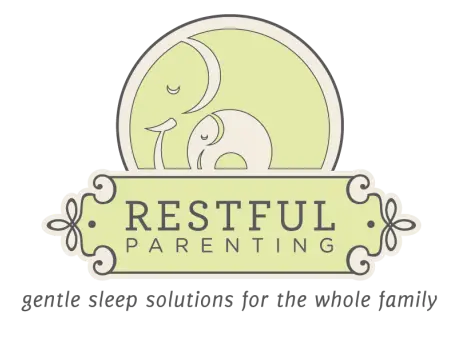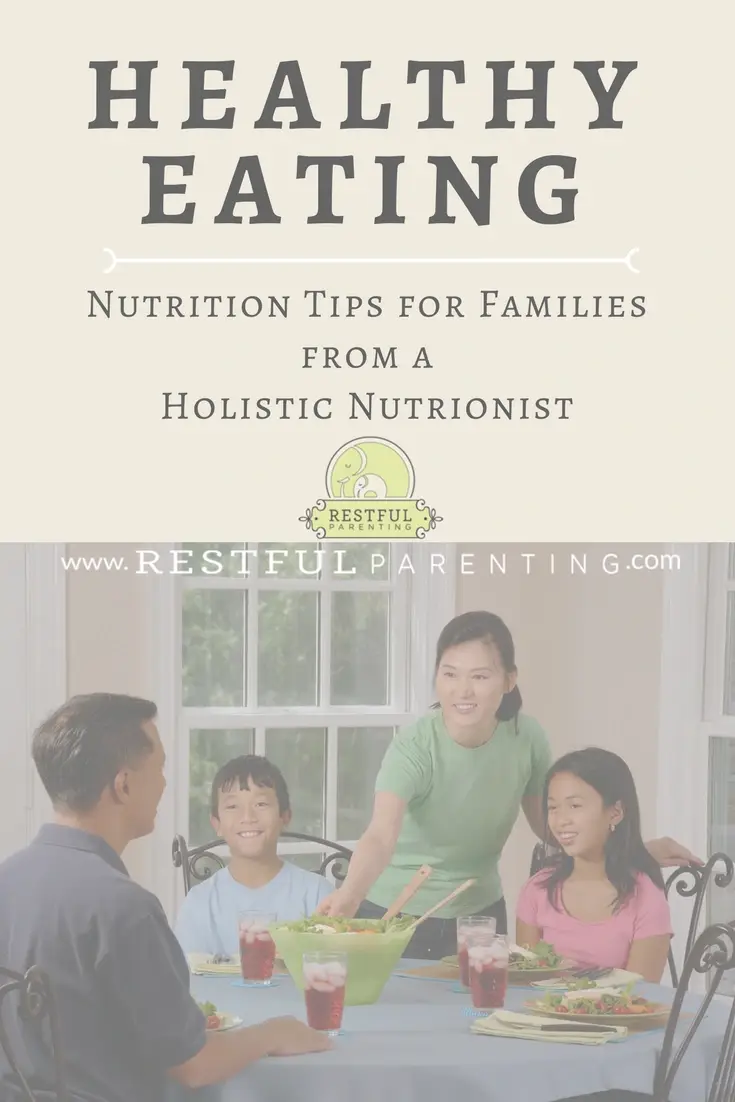As parents, it is our job to make sure our kids are eating healthy and growing, but between busy schedules, exhaustion and our picky eaters that can be so tough! We were lucky to have Jess Sherman, RHN be a guest speaker for our Facebook group to offer us healthy eating tips for families!
We learned a lot talking to Jess about nutrition and wanted to share all the amazing info on healthy eating with you here. You can watch the video on our Facebook group here (it’s long but so worth it!).
Here is a summary of our interview with Jess Sherman:
What is a holistic nutritionist?
Holistic Nutritionists are trained to be health and wellness coaches. It’s a holistic approach to thinking about nutrition, functional nutrition, functioning of the body as a whole system. We shouldn’t think about the body in compartments- it makes more sense to think of it as an integrated system. We need to think about how food affects the body, mind and spirit as a whole.
My emphasis is on helping families. I offer group coaching and one on one. As a mom of 3, I thought I knew what I needed to do to feed my family, but I realized how overwhelming it can be to have that challenge of feeding a family. It can be stressful with picky eaters and a lack of energy to cook.
It can be overwhelming too with the barrage of information available over the internet- what not to eat, what to eat. The list seems to change constantly.
It takes time, money and energy to feed your family. Healthy eating/feeding is not an add-on to parenting, it is a part of parenting.
How can people work with you?
The beauty of modern technology is that I can coach all around the world. I work at the Ottawa Integrative Health Center a few days a week for live one on one coaching, but my group programs are much more economical for most families. Everything is recorded online and visual in the group coaching so you are able to share the experience with all family members so that everyone can get on board.
Let's talk about picky eaters!
There are lots of kids who don’t eat meat and/or love their carbohydrates! We want to make sure all the nutritional bases are covered. We are focused on building health. We have so many issues to worry about as parents, that obsessing over calories is not necessary as long as your child is thriving. If your child is constantly sick, or falling off the growth chart, or their behaviour is off, nutrition may need to be looked at as there can be a connection. Your child’s behaviour is often a response to their health.
What drives picky eating?
Picky eating often starts when the social dynamics of eating are affected-when we are bribing, coaxing, forcing, or making them sit until plate is empty we create those power struggles.
Doctors will tell you, “kids won’t starve themselves” and “Your job is to feed them,their job is to eat.” Left to their own devices kids will eat when they are hungry and stop when they are not. It is important to help kids develop eating competence to develop a healthy relationship with food. You can read more about this concept at the Ellyn Satter Institute.
There can however be underlying bio-chemical issues in children with special needs (ie: autism, ADH,dyslexia, etc.) that can interfere with their eating .
Picky eating issues can also be biological. For instance, nutritional deficiencies can get in the way, affecting the hunger cues, satiety and taste sensation. Issues like zinc deficiency, vitamin C deficiency, lack of B vitamins can affect eating.
Even sleep issues can affect eating behaviours- as poor sleep is when hunger cues are activated.
Yeast overgrowth in the gut can cause cravings for carbs and sugar. I see this one a lot! Skin rashes, eczema, hyperactivity and craves carbs and sugar, can be signs of yeast overgrowth.
Tips for parents of picky eaters:
- Change the social dynamics! Avoid power struggles and understand that anxieties about trying new foods-usually starting around age 2- are natural. Our job is to help them feel less scared of trying new foods. Don’t panic. Stress will get in the way and they will feel your anxiety. These power struggles will not help your relationship with your child.
- Veggie supplements can be helpful. Try dehydrated fruit and veggie supplements. I always put food first though so that they do learn to eat vegetables.
- Supplements help me to have peace of mind knowing my kids are getting their nutritional needs met. It’s not worth fighting over. If they have a supplement at breakfast I can feel better if dinner is not perfect. Check out Jess’ page here about choosing supplements.
- You can hide veggies in their food by grinding them up. (Check out Jess’ recipes here)
- My kids do eat sugar. Have a conversation with your kids about the effects of eating well, but let them decide. Sugar blunts the immune system, feeds yeast, depletes magnesium and depletes nutrients so help your kids make informed decisions. Give extra doses of the good stuff when they make the choice to eat the sugary treats.
- Kids who don’t eat meat or any protein rich food can often be caused by a zinc deficiency. Meat is a major source of zinc. If you are not eating it, you may be deficient. Zinc can be found in some vegetables too. Zinc deficiency can change taste buds and some foods become unappealing. Zinc is needed for creating hydrochloric acid in the stomach-which is needed to digest proteins. The lack of hydrochloric acid causes stomach upset when you do eat proteins. Try 10-15mg of zinc supplement for a month to see if this improves.
- Vegetarian and vegan diets can be great, but require a good substitute of the nutrients found in animal foods. Animal foods give you good bang for your buck for nutritional value. If you choose to go vegan or vegetarian for your child, (which isn’t for everyone) make sure you know the signs of nutritional deficiencies. (Check out my book for a full list) Fatty acids, vitamin A, B12, iron, and saturated fats are the major concerns that can be lacking and are important for kids for behaviour and cellular development. Know what to look for and adapt as needed.
“Children need to trust us about what we are teaching them about healthy eating. Teach them about what healthy choices are and model those healthy attitudes. Teach them about how food makes them feel- if cheese makes their stomach feel bad, they need to learn to make that connection to help them make better choices that affect them.”
Check out Jess’ page on Picky Eating
Is there an alternate food packed with nutrients?
Theoretically, nutritional yeast and spirulina have a version of B12- if your child is starting to feel lethargic and tired, or behaviour or learning changes, it may be time to explore what they may be missing in their diet.
I coach people on what to ask their doctor, and whether or not to get a blood test done to see where the deficiencies may be. First and foremost, ask yourself if the food coming in to the body, if not make sure to add it before even bothering to test. If the food is being eaten, but signs of deficiency are there, absorption needs to be looked at. Constipation and diarrhea are signs that absorption of vitamins may not be happening efficiently-work on absorption first. Blood tests for deficiencies can be a last resort.
Admittedly, I am not a vegan expert by any means, but I personally don’t recommend veganism for children. There can be creative ways to get the required nutrients though. Vegetarianism for children can be done with fish and eggs, butter and fermented dairy (yogurt/kefir) as part of the diet. You can get your sources covered without having to eat animal flesh.
Milk alternatives. What about the child who can't tolerate cows milk?
It depends on what’s going on-sometimes a child may not tolerate cow’s milk, but they may tolerate a fermented dairy or kefir. Cow’s milk can be a great all in one nutritional punch with fat, protein and carbohydrates all in one. There are lots of alternatives to cows milk that contain calcium, vitamin D, proteins and carbohydrates. Another animal dairy is really the only real alternative-you could try goat or buffalo milk.
Nut and seed milks are not quite the same nutritionally- but often are fortified with the needed nutrients. A good choice to try is a combination of unsweetened almond and coconut milk – mix a can of coconut milk with the unsweetened almond milk to get some of the needed fat, but it won’t be the same as drinking a glass of cow’s milk. It is great for cereal though or weening off cow’s milk. There is no nutritional need to give a glass of milk if they are getting the nutrients elsewhere. The recommended amount is 500 mg of calcium for a 1-3 year old per day.
Cow’s milk is full of hormones naturally because it was meant to help a calf grow. Make sure you are getting Canadian milk, as it is not injected with growth hormones like U.S milk.
You can find more info on milk alternatives here.
How much sugar is too much?
When it comes to sugar in our diets, context of the whole diet is important to consider. 6 grams of added sugar per day is recommended. Most of us are way off by hundreds of grams per day! We do love our sweets! Denying your kids (or ourselves!) sugar can backfire. Allowing yourself a bit as part of an overall healthy diet is okay.
If your child is battling yeast or blood sugar though (for older kids- has a sugar high and then crashes, or can’t sleep), you may need to be more restrictive.
Some tips for sugar consumption:
- No sugar before bed.
- Match sugar intake with something higher in protein.
- If you are making a treat, use a lower glycemic sweetener, like coconut sugar or honey, add extra fiber like flax seed to slow down the sugar.
- Don’t deny them sugar entirely. I don’t necessarily agree that deprivation leads to gluttony of it- but moderation is the key.
Tips to maintain a healthy gut for kids:
From baby to adult- there are 3 core strategies I teach:
- Nutrient density
- Blood sugar support
- Digestive support
There is so much new research on the gut- it’s a fun time to be a holistic nutritionist! You can read more about these strategies on Jess’ blog.
Some gut healthy foods that help digestion:
- Plant chemicals
- Kombucha (although can be too yeasty-signs: inapporpriate giggle fits, wanting to be upside down all the time, spinning around alot, repetitive behaviour, moody, explosive) kombucha has a touch of natural alcohol and is high in sugar for fermentation however (choose fermented veggies over sweet drinks for younger babies)
- Good quality yogurt or kefer (so easy to make your own too!)
- Probiotic supplements (broad spectrum-with different strains; rotate them around to switch it up)
- Experiment with fermented vegetables like sauerkraut or fermented carrots (have a lemony sour taste that some kids love) I have a book on home fermentation- check it out on my website
- Phytolchemicals- lots of fruits and veggies, particularly those with rich colour (think rainbow!)
- Fatty acids, Vitamin A to nourish the digestive lining
- add fibre (apples, beans, etc)
- Sugar is not good for the gut
- Coconut milk
- Homemade broth
Read more about these tips and more ideas for Improving Digestion on Jess’ page here.
Some nutritionists say: Food before one (years old) is all about the fun; my motto is: Food before one is all about the gut! If you are just getting started with solid food with your baby, check out Jess’ tips here.
How much should they get?
I don’t obsess over numbers but a kid’s diet should be a ratio of about 30% fat- 30% protein and 40% carbohydrate. Think about what your child is eating in a day, look at their plate in terms of ratios. If your child is losing weight or muscle, something is up with their growth and development, then get doctor and nutritionist involved.
We have so much to worry about as a parent, just learn to watch their cues (understand your kids!) and keep offering the healthy food! Keep being nurturing about food- it’s about connection, nourishment and growth. Sometimes we get so focused and panic, we forget that food is about coming together to eat something delicious!
Just remember:
“Relax. Nurture. Offer, offer, offer!”
Thank you so much to Jess for joining us and sharing her wisdom!
Jess is a Holistic Nutritionist and mom of 3 who helps families get healthy. She focuses on helping parents understand how to use food to help improve mood, behaviour, sleep and learning. You can learn more about her at www.jesssherman.com.
Meet Jennifer Taun
MSW, RSW – Partnering with Restful Parenting

We are excited to introduce Jennifer Taun, MSW, RSW, as a valued partner with Restful Parenting. Jennifer will be providing consultation and supervision support for our team, working closely with Elisa and Pam to ensure our clients receive comprehensive, effective, and compassionate care.




